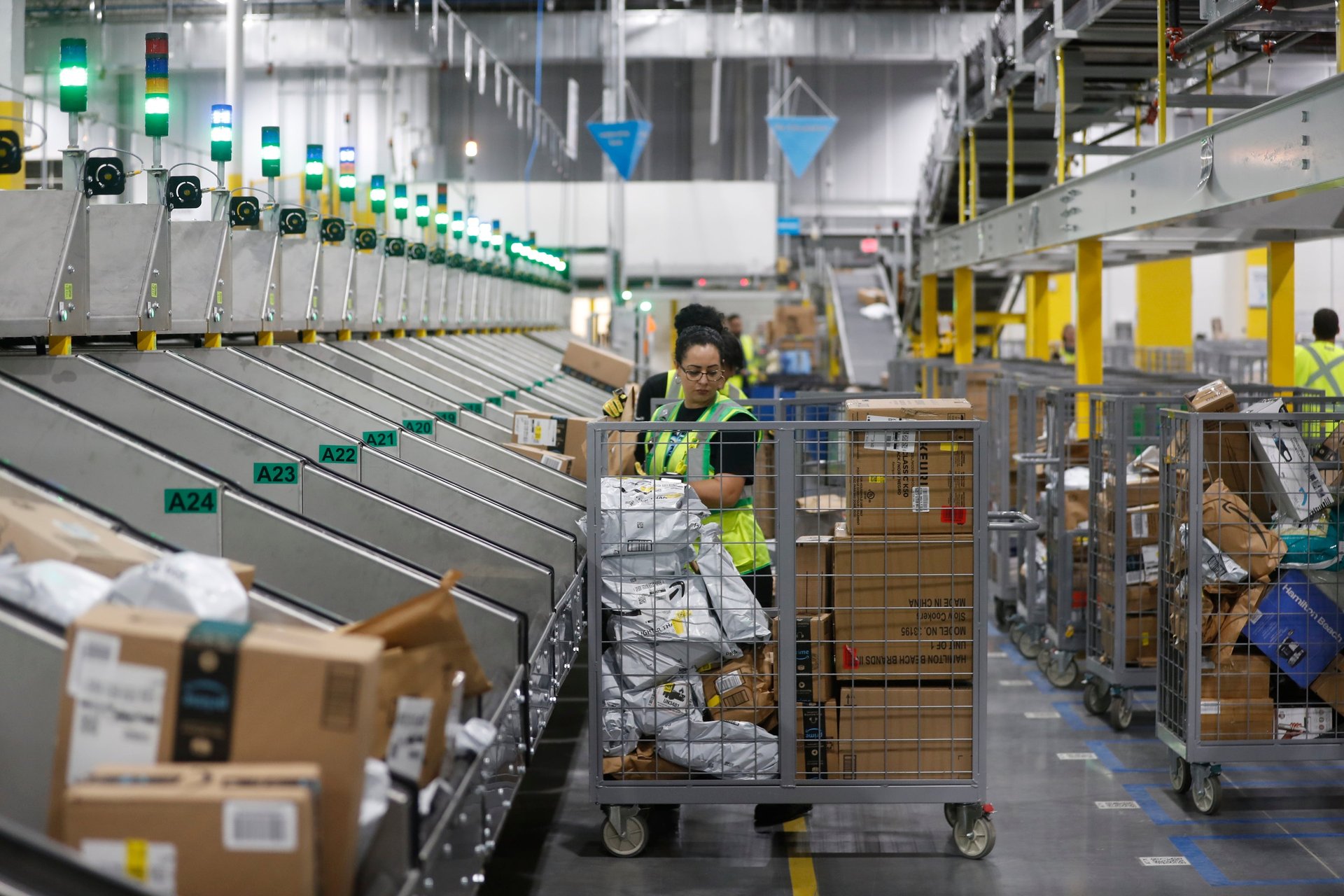A tariff loophole is about to close. Here’s how it's hitting online shopping
Temu warned that items coming to the U.S. may be subject to heavy import charges, as both it and Shein hike prices

Cheap goods from China are getting a whole lot more expensive. A shift in U.S. trade policy that will go into effect on May 2 is already affecting how millions of Americans shop online.
Suggested Reading
The Trump administration is about to close the “de minimis” loophole, a provision that’s allowed low-cost goods — most recently those valued under $800 — to enter the U.S. without customs duties or tariffs.
Related Content
This change is particularly poised to disrupt the business models of popular Chinese e-commerce platforms such as Shein, AliExpress (BABA), and Temu, which have relied on this exemption to sell and ship low-cost products directly to U.S. consumers. The Biden administration said that over the past decade, these shipments have increased from about 140 million a year to over a billion.
Now, a notice on Temu’s checkout page says items imported into the U.S. may be subject to import charges of about 145%.
“Items imported into the U.S. may be subject to import charges. These charges cover all customs-related processes and costs, including import fees paid to customs authorities on your behalf,” Temu says on its website. “The amount listed may not represent the actual amount paid to customs authorities.”
Shein, meanwhile, is raising prices to mitigate the president’s tariffs. A banner at checkout on the site reads, “Tariffs are included in the price you pay. You’ll never have to pay extra at delivery.”
Last week, both Shein and Temu started hiking prices to offset tariff costs. CNN reported that two patio chairs on Temu that cost $61.72 on Thursday are now listed at $70.17. A Shein bathing suit saw a 91% increase from $4.39 to $8.39.
Shein and Temu, along with Amazon (AMZN) and plenty of smaller firms reliant on imported products, have built their business models around the de minimis exemption, which they were able to claim because they send products directly to customers — not in bulk to warehouses.
The closure of this loophole means that these companies will now face the same tariffs and customs procedures as other international sellers — which will increase costs, which are already being passed on to consumers in the form of higher prices.
According to a congressional research report, Shein and Temu reportedly paid no import duties in 2022. Meanwhile, traditional retailers, such as H&M and Gap (GPS), collectively paid hundreds of millions in import duties. The report estimated that Shein and Temu accounted for over 30% of all daily de minimis shipments to the U.S. that year.
A Bank of America (BAC) research note said the removal of this exemption could significantly taper the growth of Chinese e-commerce companies.
A study by Yale and UCLA economists found that ending the exemption will “disproportionately hurt lower-income and minority consumers.” Research indicates that nearly half of de minimis shipments were sent to low-income ZIP codes.
The de minimis exemption dates back to the 1930s, when it was designed to facilitate small-scale trade by allowing low-value goods to enter the country without complicated customs declarations or tariff payments. House Democrats urged the Biden administration in 2024 to close this loophole, and the administration said it was cracking down on what it called the abuse of the de minimis exemption in September of that year.
Companies are looking for workarounds to keep their goods cheaper — such as by expanding their warehouses in the U.S. and working with local suppliers. But for Temu and similar retailers, disruptions are virtually guaranteed; “the vast majority of Temu’s inventory is sourced from China,” David Warrick, an executive at supply-chain risk management firm Overhaul, told Quartz earlier this month.
For American shoppers used to rock-bottom prices, the era of ultra-cheap Chinese goods may be coming to an end.
